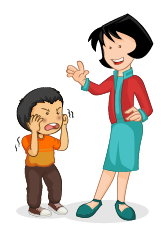|
If you are unable to view our Newsletter Issue 62, June 2019 on your mobile or desktop, click here to view them online.
|
| |
 |
|
Issue 62 | June 2019
|

|
Dynamics International School is now accepting enrollment for its 1st intake. We are a unique private school for children between Reception year and Grade 2 level, who require academic support or simply benefit from a different type of instruction. We offer small class sizes and specialise in teaching students with any form of learning delay by ensuring our programs match our students' academic levels. Learning is a positive experience and students achieve significant academic gains and increased self-confidence in our school.
Furthermore, our school includes special education and certified teachers who are at hand to support for Speech Therapy, Occupational Therapy, Physiotherapy as well as Psychologists with whatever concerns presented.
Call us at 61009235 or go to www.dynamics.school to find out more about our school.
|
|
|
|
 |
Children are dynamic and complex, and the behaviours they display are similarly complex and often appear to be chaotic.
 According to the Chaos Theory, chaos is actually a form of order that is disguised as disorder. This theory suggests that even in cases of extreme disorder, such as the challenging behaviours that are often observed in our children, there is an underlying pattern that can be teased out.
According to the Chaos Theory, chaos is actually a form of order that is disguised as disorder. This theory suggests that even in cases of extreme disorder, such as the challenging behaviours that are often observed in our children, there is an underlying pattern that can be teased out.
"Is it sensory or is it just bad behaviour" is one of the most frequently asked questions. The Chaos Theory can be applied to help understand the answer.
In their book "Is it Sensory or Is it Behaviour", therapists Carolyn and Betty cite five key assumptions that can be applied to behaviour.
|
|
 |
 Eunice Lim
Eunice Lim
Occupational Therapist
Master of Arts (Public Affairs),
Australia
B. Health Sciences (Occupational Therapy),
Australia
Eunice is a Singaporean occupational therapist. She graduated from the University of Sydney in Australia. She has experience working in hospitals, special school and private clinic settings. This varied experience has given her the skills to interact with a diverse range of clients.
10 questions with our employee spotlight of the month, click here.
|
|
 |
| EIP School Holiday Program |
| Join us for 8 exciting days of Art and Craft, Music, Drama, Language Arts, Social Interaction and Communication, Imaginative Play and Enjoyable, Interactive,Positive fun! |
| |
|
|
| Home Based Speech Therapy & Occupational Therapy Services |
| At Dynamics, our therapists are
able to use a range of home based therapies to help your child achieve their full potential. |
| |
|
|
 |
Five key assumptions that can be applied to behaviour.
1. Interaction between and among variables is nonlinear.
Children's behaviours result from the interaction between their internal sensory systems, the physical environment, the demands of a task presented to them and how they feel at that moment. Each variable may affect the child's behaviour on a certain day, but not on others. For example, your child may eat a certain food at home, but not in a restaurant next week.
2. Variables affect one another and are interdependent.
Similarly, if your child slept poorly the night before, and then had a demanding day in school, a trip to a crowded departmental store to get school shoes may result in a meltdown as he gets overwhelmed by the noise and lights.
3. Chaotic systems exist in states of flux or turbulence, not in equilibrium.
Behaviours are learnt and established by reinforcement. At times, these behaviours arise due to turbulence within themselves and their environment. When an equilibrium can be established between the forces inside the body and the demands of the environment, chaos can be resolved. For example, a child may appear inattentive in a busy classroom. This might be due to his sensory system shutting down in an attempt to avoid being overwhelmed by the multisensory input present in the classroom. Once the child is able to tune out irrelevant input and tune into valid ones, the behaviour may resolve.
4. Chaotic systems are self-guided, self-organizing, and not hierarchical, and they demonstrate emergent behaviour.
Children behave in response to their environment and this arises from the child's attempt to organize themselves, their world and trying to function in it. A pre-verbal child who screams and cries at a birthday party is trying to communicate that she may not be able to cope with the noise and visual stimuli, and is attempting to control her environment.
5. Chaotic systems possess an underlying order.
There is an order and purpose to every behaviour a child displays, even if it appears to be chaotic or non functional. A child who has oral sensitivity might scream and cry when asked to brush his teeth. This could result in extra attention from the parents. He might later react to a different request using the same behaviour. Screaming and crying may then become a learnt response to all requests made of him.  In this example, an attempt to control the environment in order to avoid an unpleasant sensory experience leads to the child learning an inappropriate behaviour. A holistic approach is needed, instead of attempting to deal with just the sensory portion or just the behavioural aspect. In this example, an attempt to control the environment in order to avoid an unpleasant sensory experience leads to the child learning an inappropriate behaviour. A holistic approach is needed, instead of attempting to deal with just the sensory portion or just the behavioural aspect.
Conclusion:
The truth of the matter is that often, there is no direct answer to the sensory vs behaviour debate. Taking the time to analyse the pattern behind seemingly chaotic behaviour will bring about lifelong change in the lives of our children and their caregivers.
|
|
 |
|
Dynamics Therapy Centre for Kids is affiliated with:
|
We have a large team of speech and language therapists, occupational therapists,
educational therapists, psychologists, teachers & all supported by our administration team.
You can be assured that at Dynamics you only get the best, from the best!
Please contact for more information details at 6734 2634 | 6100 9235 or email inquiry@dynamics.com.sg |
|
Dynamics Therapy Centre for Kids Pte Ltd
583 Orchard Road Forum The Shopping Mall
Singapore 238884 |
|
| © Dynamics Therapy Centre for Kids Pte Ltd. All rights reserved. |
|
|



